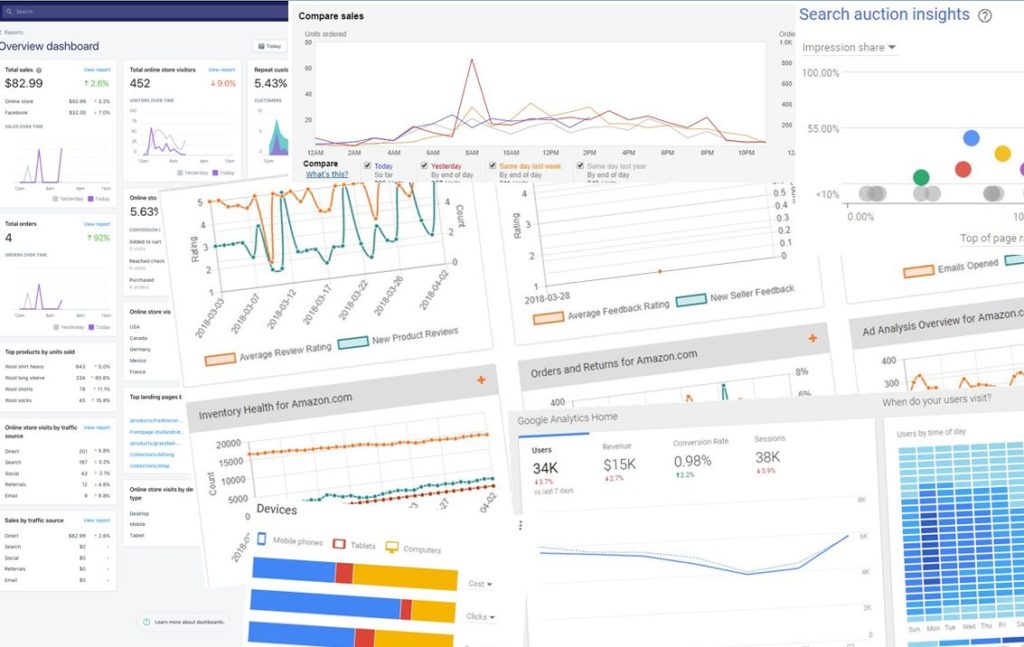Don’t want to know why and just want to do it – go here
E-Commerce Weekly Trend Report Template
Amazon Weekly Trend Report Template
Why I do a Weekly Trend Report?
‘Chunking’ is a learning strategy that breaks related information into smaller chunks that are easier to commit to memory. The classic example is a phone number 801-297-3232 is easier to remember than 8012973232.
Once we start building chunks of data in our brain we move to the next stage of learning – pattern recognition. Grandmaster chess players are an exceptional example for chunking and pattern recognition. Studies of a master chess player’s brain while they are playing show that their brains operate out of a different area than an amateur player. They have memorized so many chunks or plays that they can easily see patterns as they are evolving. Chunking reduces our cognitive load while providing meaning and context to data allowing us to master subjects.
Every skill you want to learn is comprised of chunks that come together to form the greater whole. Business is no exception – a business is made up of many smaller units that come together. When I buy a business I have a lot to learn quickly so I use chunking to do it by taking small parts of the business and tracking the metrics. I track many areas of a business, but each is broken into a smaller chunk.
I started building my chunks in an excel spreadsheet that I call my Weekly Trend Report. Originally, this started to help me learn a new business, but I never stopped gaining deeper insights into my business so I continue to do it. I may add or delete chunks at different stages, but I still do my Weekly Trend Report every Monday morning.
The Weekly Trend Report helps me learn the trends and patterns in my business and provides an early warning system for when something is broken. The report also estimates my gross profit after product costs and advertising. Since advertising is the largest expense in my business I want to know how we are performing every week. Ad campaigns can quickly run amok and eat up all the profits of what seemed like a great sales week. I don’t want to have four record setting top line sales weeks and get to the end of the month to find out we lost money when we do our Income Statement. I want an early indicator of what’s going on in my business so I can make adjustments when needed.
If last week was our most profitable week ever – then I want to know what that looked like in the context of data that I understand and follow. What metrics made that happen? Also, what was I working on last week? ‘What happened in our business last week that made us hit our goal?’ is a very specific question that can be answered with a consistent data set.
I also want to know what ‘normal’ looks like in my business. This is important when buying a business because you don’t want to break the business you just bought – so you need to have some idea of what is normal. Understanding your business well enough to know what is normal for your industry and your customers helps you cut out some of the noise of tactics or strategies that probably wouldn’t work for you. Not all businesses perform the same so learning what is unique and normal in your business leads to better decisions and allows you to focus on what matters to you specifically.
 There is no shortage of data in business. Every software we open shouts at us in charts and graphs. But learning our own business requires context and meaning. We can’t outsource our understanding of our business to all the services we use. I use my Weekly Trend Report to get that context. I take fifteen minutes a week to shut out the noise and learn chunks of my business.
There is no shortage of data in business. Every software we open shouts at us in charts and graphs. But learning our own business requires context and meaning. We can’t outsource our understanding of our business to all the services we use. I use my Weekly Trend Report to get that context. I take fifteen minutes a week to shut out the noise and learn chunks of my business.
If you would like to see templates of my Weekly Trend Report and where I get the data, I have an E-Commerce Weekly Trend Report and Amazon Weekly Trend Report
Here are some great articles on chunking and pattern recognition:
The Science of “Chunking,” Working Memory, and How Pattern Recognition Fuels Creativity
Brain Study Shows Grandmaster Chess Players Think Differently Than Amateurs Do
